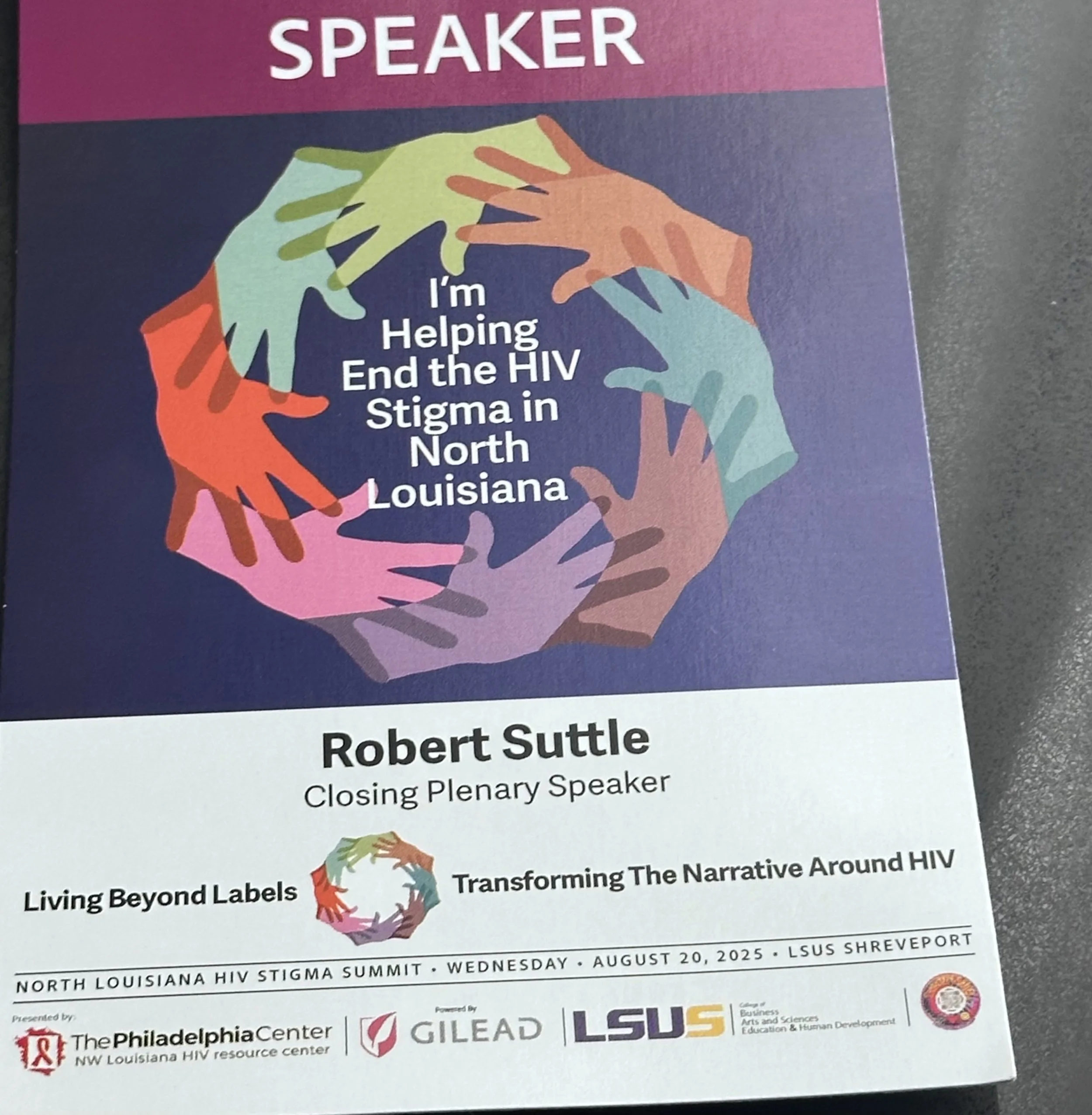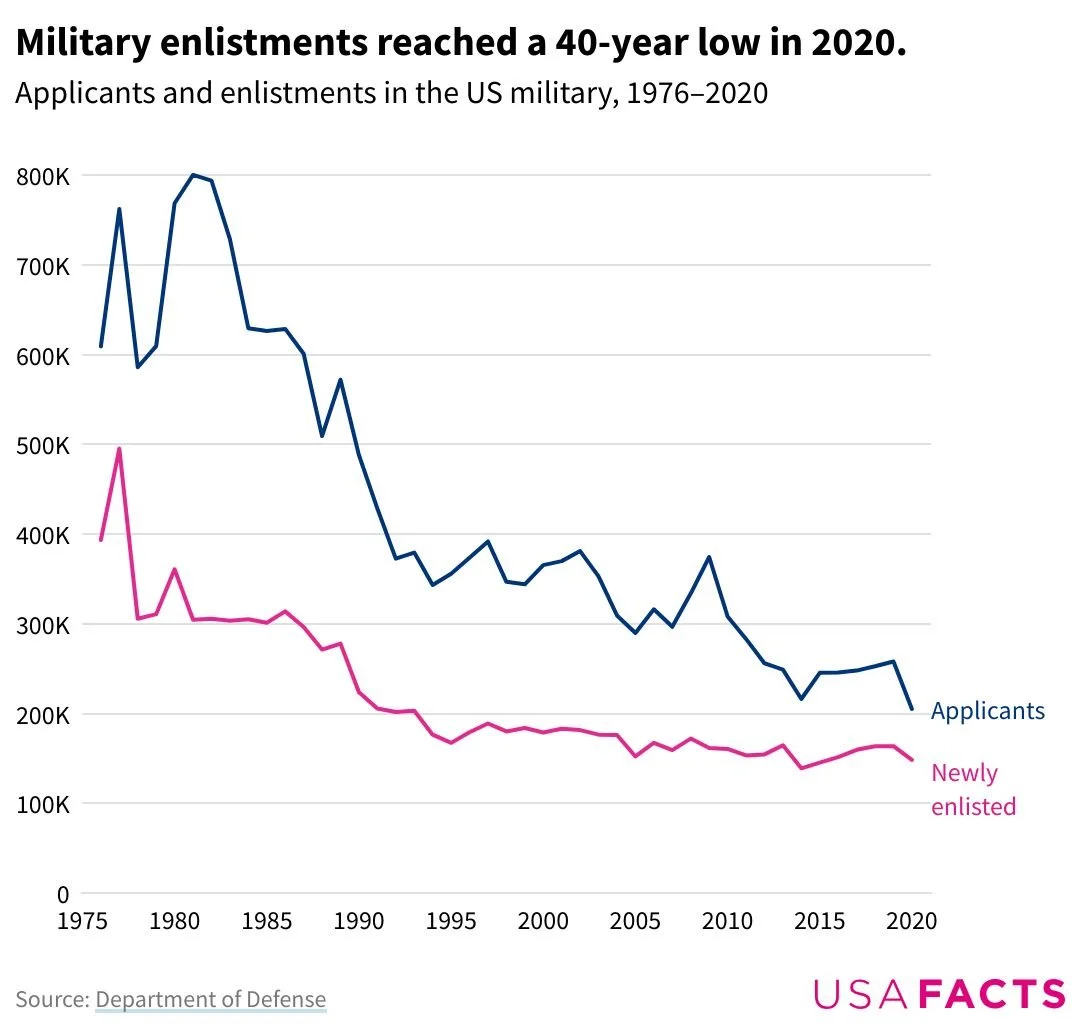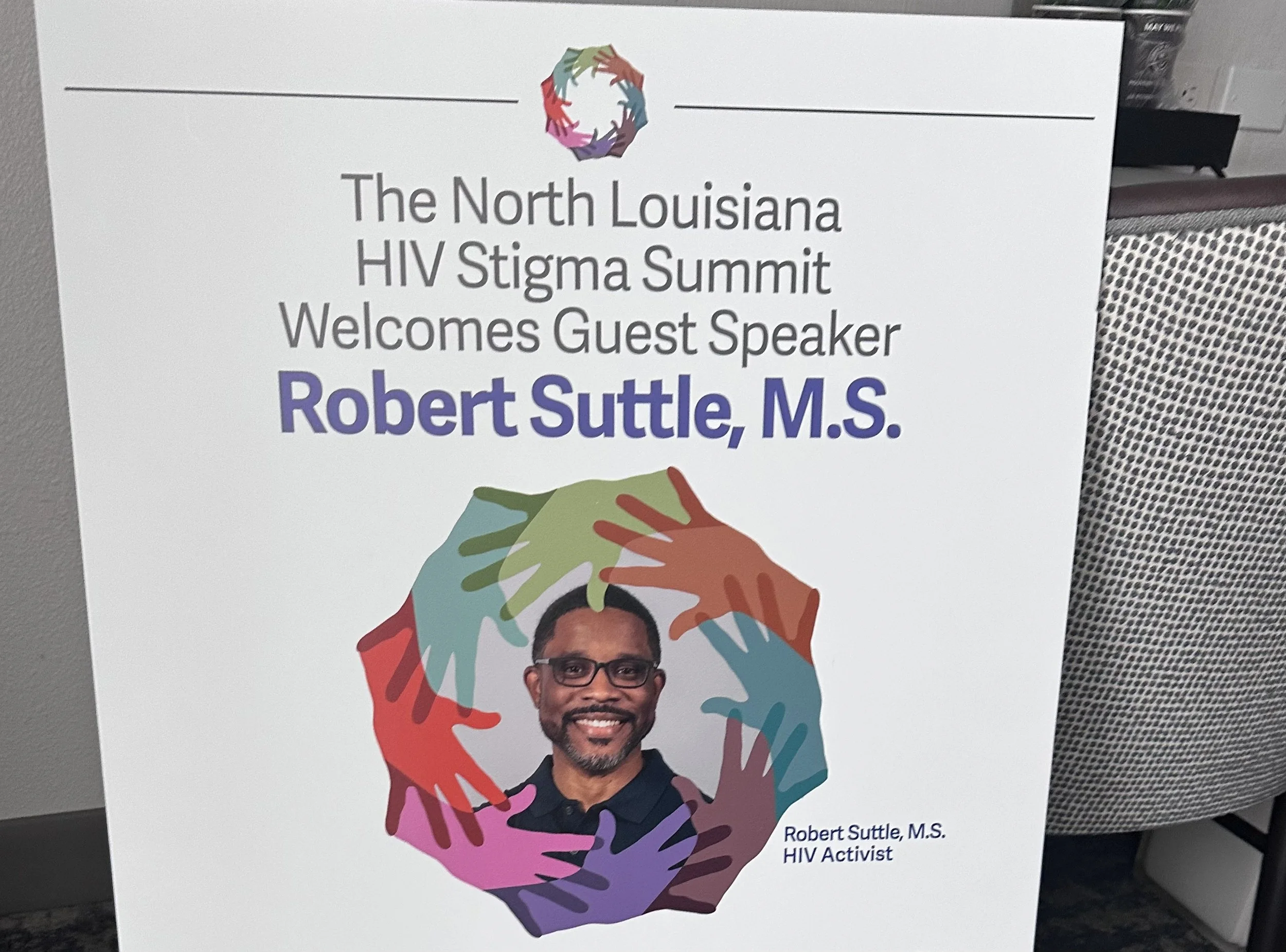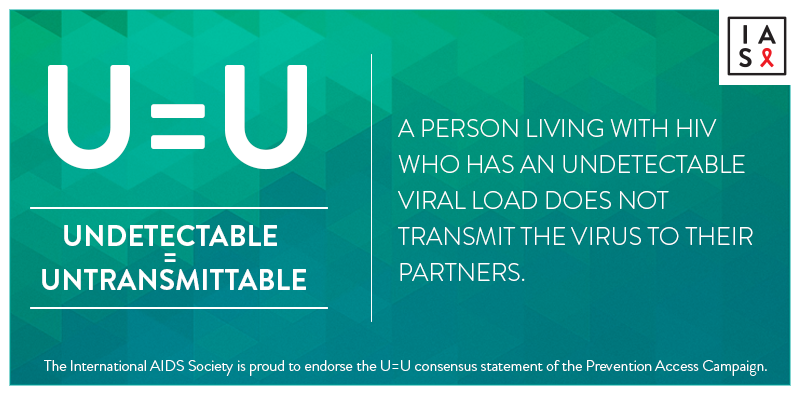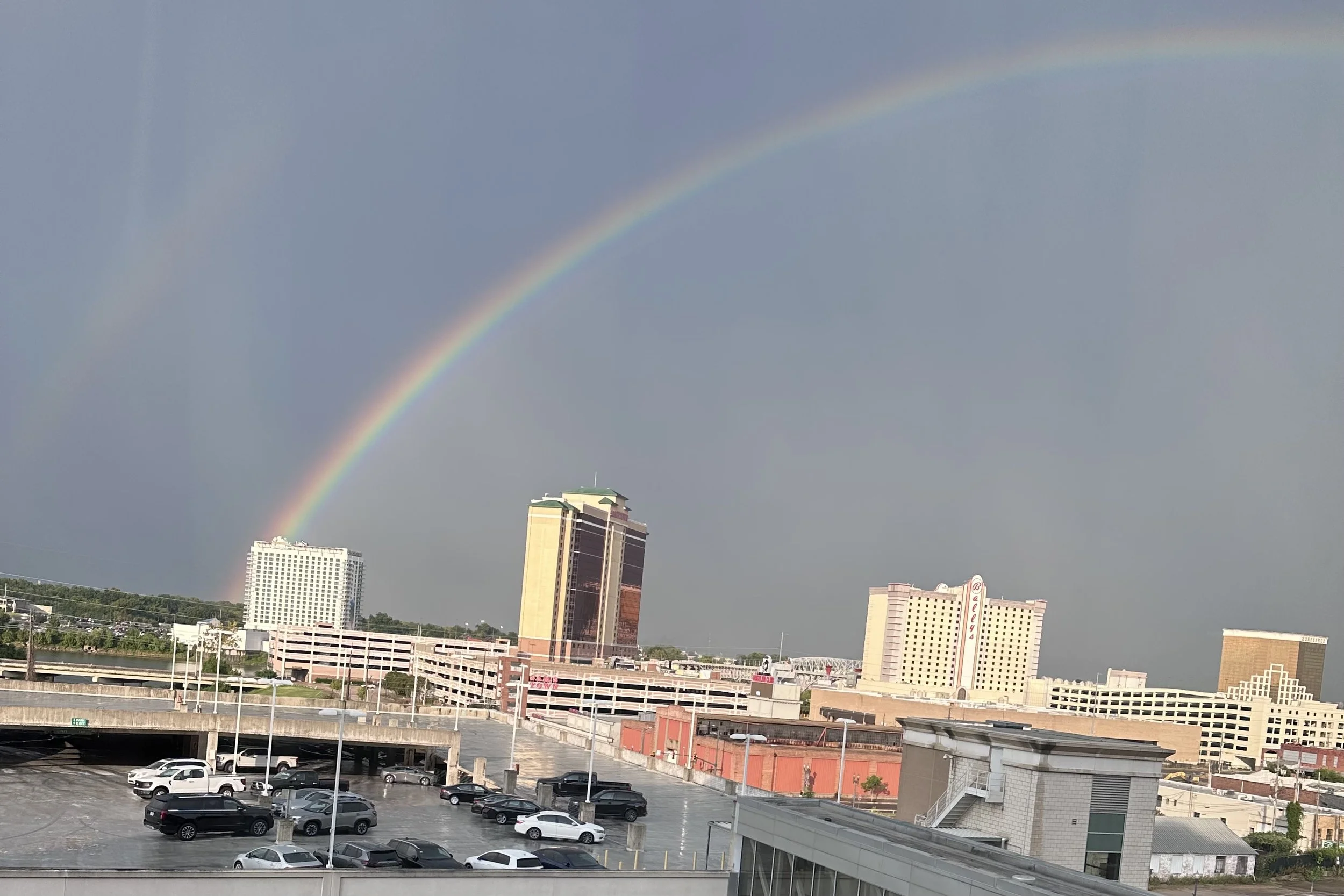Blog: HIV Stigma - Where Do We Go From Here?
Editor’s Note (2026):
This piece was originally published as an early exploration of HIV stigma and movement direction. Since then, my work has evolved toward a more explicit systems analysis of how stigma is produced and sustained through law, policy, and institutional practice. This post remains here to document that line of inquiry and its role in shaping later work.
I had the honor of returning home to Shreveport as the closing plenary speaker at the inaugural North Louisiana HIV Stigma Summit at Louisiana State University-Shreveport (LSUS). The summit coincided with Southern HIV/AIDS Awareness Day (SHAAD), founded by the Southern AIDS Coalition in 2019. This day reminds us of the disproportionate impact HIV continues to have across the South, and the urgent need to respond with equity, compassion, and justice.
This year’s theme, “Living Beyond Labels: Transforming the Narrative Around HIV,” could not have been more significant. Too often, people living with HIV are reduced to labels, criminal, diseased, irresponsible, that strip us of our humanity. This summit was about rejecting those labels and reshaping the narrative toward dignity, science, and justice.
Image of a printed summit name badge.
A Full-Circle Moment
This was more than just another speaking engagement for me. It was a full-circle moment. I grew up in Shreveport, and in 2003, I graduated from Louisiana State University-Shreveport. Just two months before that milestone, I learned I was HIV positive while attempting to enlist in the military. Because of a federal ban, I was denied enlistment due to my HIV status. Years later, I was prosecuted under Louisiana’s HIV criminalization law, a painful reminder that stigma is not just cultural, it is also written into law.
Image of a line chart showing changes over time of applicants and enlistments in the U.S. military.
But this city is also where I began to rebuild. After my six-month sentence, I found community at the Philadelphia Center, volunteering to learn more about HIV. I was hired as a case manager supporting Black gay men living with HIV, and then I began to organize for justice, lending my voice and my story to the movement to decriminalize HIV.
Standing before the summit attendees inside the LSUS ballroom, I reflected on my younger self sitting in classrooms or walking the campus, uncertain, fearful, and carrying a new diagnosis I didn’t yet understand. Returning not in silence, but in power, reminded me why we fight: so no one else has to walk that path alone.
Image of summit speaker on poster board.
The Power of Education, Coalition, and Lived Experience
At the summit, we gathered as community leaders, service providers, and advocates to address the realities of stigma and its effects on health outcomes. We emphasized the important role of U=U (Undetectable = Untransmittable) for people living with HIV and PrEP (Pre-Exposure Prophylaxis), HIV prevention medication for HIV negative people in Black communities in Louisiana, as essential tools for both prevention and liberation.
Image of International AIDS Society U=U campaign graphic.
But ending stigma is not just about shifting attitudes. It is about challenging harmful policies, building coalitions that amplify our collective power, and centering people with lived experience in every decision that affects our lives.
That truth became clear during the event when a North Louisiana lawmaker stood and discussed a proposed Louisiana bill that would have criminalized nearly every adult in the state for knowing whether they had a sexually transmitted infection (STI).
Think about that. At an “anti-stigma” summit, a lawmaker openly supported the idea of expanding criminalization based on health conditions instead of dismantling it. How backwards is that?
And yet, the room did not stay silent. Advocates and community leaders pushed back, reminding us that we cannot end stigma by deepening criminalization. That collective resistance gave me hope, and it perfectly reflected the theme of the day: living beyond labels and reclaiming our narrative.
“Living Beyond Labels means refusing stigma, shame, and punishment, and instead claiming our humanity, resilience, and power.”
Where Do We Go From Here?
In my closing remarks, I posed a central question: If stigma is not justice, where do we go from here?
For me, the path forward is clear:
We challenge stigma. Wherever it appears, in law, in healthcare, in faith spaces, in our own conversations.
We center lived experience. Those of us living with HIV must be at the center of conversations, policy decisions, and public education.
We build coalitions. No single organization or community can dismantle stigma alone. We need partnerships that bridge across race, gender, sexuality, geography, and faith.
We invest in equity. U=U and PrEP are powerful, but they must be equitably accessible across the South, particularly for Black and Brown communities who bear the greatest burden of the epidemic.
Strengthening the Movement
The fight against HIV stigma and criminalization is bigger than any one of us. To learn more and get involved with the organizations leading this work in Louisiana and across the South, follow the:
Louisiana Coalition on Criminalization and Health (LCCH) for updates on repeal or modernization efforts to decriminalize HIV.
Philadelphia Center in Shreveport for work in prevention, care, and advocacy.
Southern AIDS Coalition (SAC) for regional leadership in addressing HIV-related inequities.
Image of a rainbow across the sky in Shreveport-Bossier metro area on August 20, 2025.
Moving Forward
Southern HIV/AIDS Awareness Day reminds us that the work of ending stigma is ongoing. It’s not just about awareness, it’s about action.
Shreveport is where I discovered my diagnosis, where I experienced the injustice of criminalization, and where I began my journey toward justice. To return here, alongside so many committed leaders, affirmed for me that while stigma has shaped our past, it does not have to define our future.
Because if stigma is not justice, and it never is, then where we go from here must be toward healing, dignity, liberation, and a transformed narrative that sees people living and aging with HIV as whole, valuable, and beyond labels.


